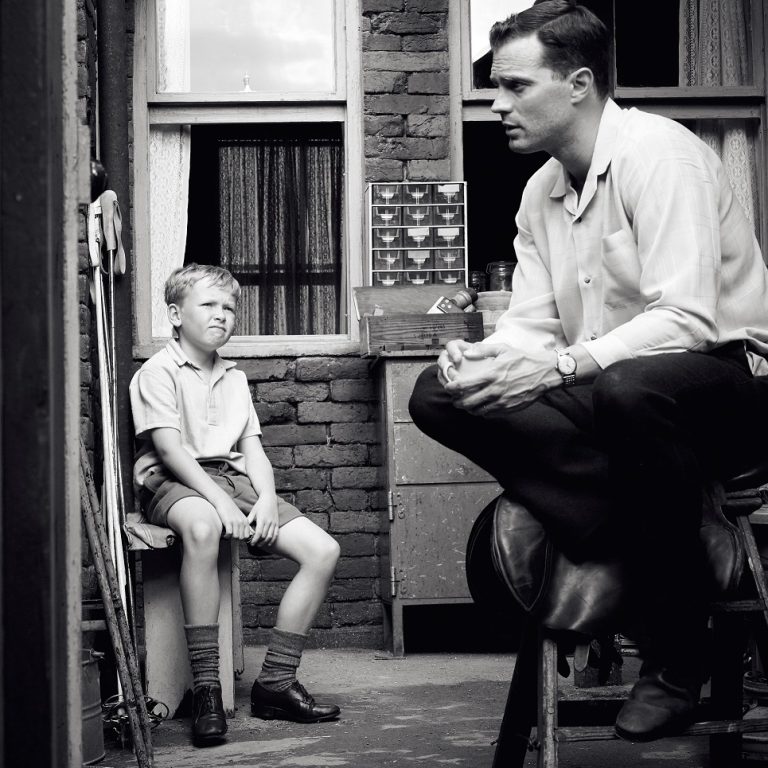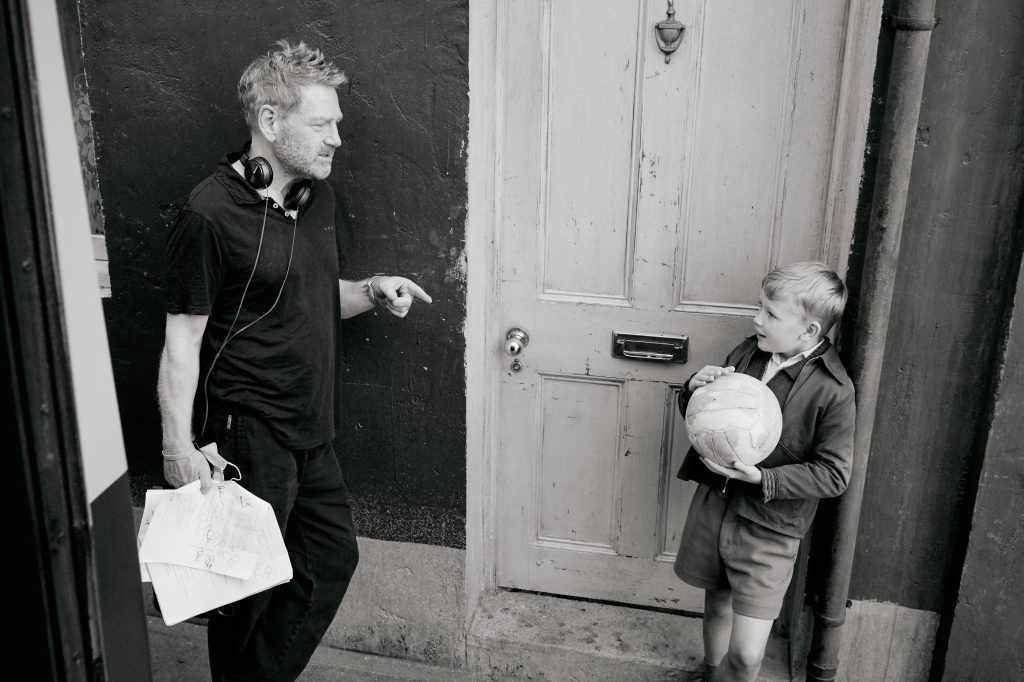
Can one film serve to truly represent a place? There are many films with titles that reference a city, state, or country. Most often, their contents are not a comprehensive history of that piece of geography but rather a specific moment in time or merely the setting for a story that might as well have happened anywhere.
But naming a place in a title usually carries a great significance, if not just for the plot but also for the filmmaker who is telling it. Kenneth Branagh’s Belfast is a deeply personal tribute to his hometown that functions both as a memoir and a fictionalized coming-of-age story.
In 1969 Belfast, Buddy (Jude Hill) enjoys a pleasant life in an idyllic neighborhood. That tranquility is abruptly disrupted by riots and persecution of Catholic families.
As his small world rapidly evolves, Buddy must also contend with the pressures of being a young boy who thinks he’s in love with a girl at school. His father (Jamie Dornan) travels abroad and is rarely home, while his mother (Caitriona Balfe) devotes herself to the care of him and his brother Will (Lewis McAskie), and his grandparents (Ciarán Hinds and Judi Dench) offer their own perspective on what it means to live a good life.

Belfast opens with aerial shots of the present-day city complemented by upbeat music from Van Morrison before a title card sets the film back in 1969 and turns its colorful scenery to black-and-white. That purposeful cinematographic choice is mesmerizing and extremely effective, reminiscent of many of the cinematic influences that have surely spoken to Branagh throughout his career. Classic films and television programs are shown frequently playing on the family’s living room television set, from The Man Who Shot Liberty Valance to the original Star Trek, giving a picture of fantasies of faraway places for the impressionable Buddy.
Branagh has described this film as “auto-fiction,” a term he borrows from Pedro Almodóvar, indicating that it is based heavily on his own experiences growing up but embellished for dramatic purposes. It is clear that this is a passion project for Branagh, who truly has, with the assistance of a talented crew, crafted a world that feels like it could be just one large square block wide. The building of barricades to prevent further damage in the way of destructive violence only seals Buddy further in, and when his father leaves for yet another trip, he might as well not exist until he happens to show up again when he is able to return home.

Hill is an extraordinary find, a ten-year-old actor in his first film role. His insatiable energy is key to establishing the film’s tone, similar to that of Roman Griffin Davis in Jojo Rabbit, brimming with curiosity but also able to appreciate the more serious moments that fall in between the lighter ones. He is surrounded by a superb cast, particularly Dornan and Balfe as the parents who hold fiercely to their principles despite ever-increasing pressure to make crucial changes for the welfare of their marriage and their family.
Oscar buzz has already begun for this captivating and deeply compelling movie, one that manages to both delight and deliver moments of steep tension. What has been captured here is the way in which it is often impossible to prepare for what’s about to happen next, and how, even in the most dismal and vicious of circumstances, people still can hold on to their humanity and their humor. To describe Belfast as uplifting and affirming feels appropriate despite its portrayal of unsettling events, and there is a relatable, inviting quality to it that manages to make it feel like home even for those who have never set foot in the city of the past that serves as its setting.
Grade: A-
Belfast will be released in theaters by Focus Features on Friday, November 12th.

